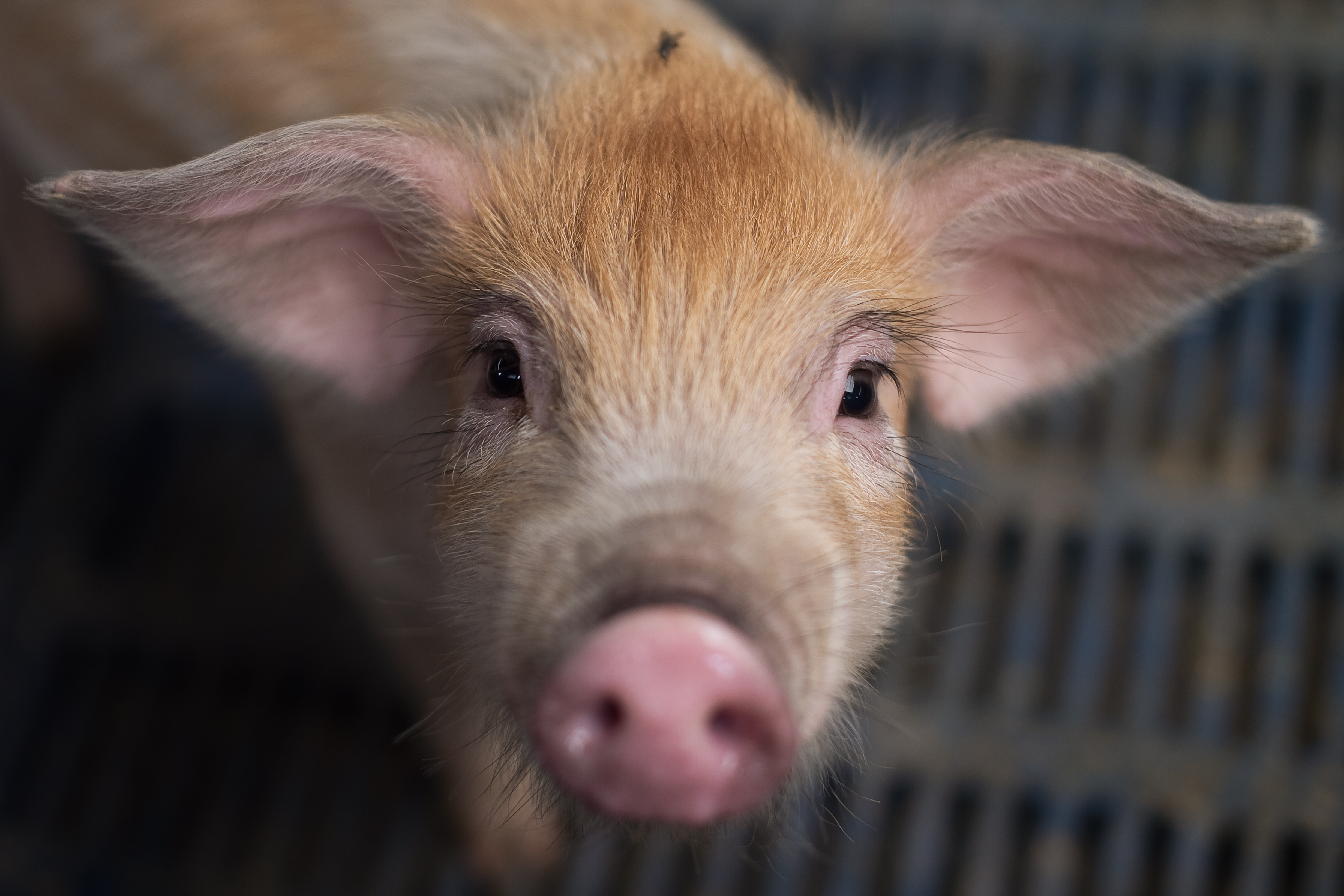Scientists restored brain cell activity to pigs that had been dead for 4 hours


A free daily email with the biggest news stories of the day – and the best features from TheWeek.com
You are now subscribed
Your newsletter sign-up was successful
This new discovery is certainly nothing to snort at.
In a study published Wednesday in the journal Nature, a team of scientists revealed they restored cell activity to 32 pigs' brains after they had been dead for more than four hours. The brains were nowhere nearly fully alive again, but the study still challenges longstanding assumptions of how seemingly deceased brains can be used and studied.
Neuroscience has long maintained that brain function quickly and irreversibly fades once brains have been cut off from oxygen. Still, some live cells could usually be pulled out from the dead brains, NPR notes from the study. So scientists in this experiment started thinking up ways they could study cells while they were still in the brain.
The Week
Escape your echo chamber. Get the facts behind the news, plus analysis from multiple perspectives.

Sign up for The Week's Free Newsletters
From our morning news briefing to a weekly Good News Newsletter, get the best of The Week delivered directly to your inbox.
From our morning news briefing to a weekly Good News Newsletter, get the best of The Week delivered directly to your inbox.
And so, in what one team member called a "shot-in-the-dark project," researchers tried pumping preservative chemicals into the pigs' brains. Six hours later, they found that "neurons and other brain cells had restarted normal metabolic functions," that the cells' immune systems were functioning, and that some neurons could still send signals, Nature writes. Scientists didn't see any sign of electric activity across the brain, but suggested that could be possible with an electric shock or a sustained dunk in more preservative solution.
The scientists were careful to avoid restoring too much activity to the pigs' brains, with one telling NPR they wouldn't pursue a consciousness experiment "without first getting some kind of serious ethical guidance." Still, even this study is sure to raise ethical dilemmas, largely surrounding the newly blurred lines between dead and live animal experiments. Read more about the study at Nature.
A free daily email with the biggest news stories of the day – and the best features from TheWeek.com
Kathryn is a graduate of Syracuse University, with degrees in magazine journalism and information technology, along with hours to earn another degree after working at SU's independent paper The Daily Orange. She's currently recovering from a horse addiction while living in New York City, and likes to share her extremely dry sense of humor on Twitter.
-
 5 blacked out cartoons about the Epstein file redactions
5 blacked out cartoons about the Epstein file redactionsCartoons Artists take on hidden identities, a censored presidential seal, and more
-
 How Democrats are turning DOJ lemons into partisan lemonade
How Democrats are turning DOJ lemons into partisan lemonadeTODAY’S BIG QUESTION As the Trump administration continues to try — and fail — at indicting its political enemies, Democratic lawmakers have begun seizing the moment for themselves
-
 ICE’s new targets post-Minnesota retreat
ICE’s new targets post-Minnesota retreatIn the Spotlight Several cities are reportedly on ICE’s list for immigration crackdowns
-
 Blue Origin launches Mars probes in NASA debut
Blue Origin launches Mars probes in NASA debutSpeed Read The New Glenn rocket is carrying small twin spacecraft toward Mars as part of NASA’s Escapade mission
-
 Dinosaurs were thriving before asteroid, study finds
Dinosaurs were thriving before asteroid, study findsSpeed Read The dinosaurs would not have gone extinct if not for the asteroid
-
 SpaceX breaks Starship losing streak in 10th test
SpaceX breaks Starship losing streak in 10th testspeed read The Starship rocket's test flight was largely successful, deploying eight dummy satellites during its hour in space
-
 Rabbits with 'horns' sighted across Colorado
Rabbits with 'horns' sighted across Coloradospeed read These creatures are infected with the 'mostly harmless' Shope papilloma virus
-
 Lithium shows promise in Alzheimer's study
Lithium shows promise in Alzheimer's studySpeed Read Potential new treatments could use small amounts of the common metal
-
 Scientists discover cause of massive sea star die-off
Scientists discover cause of massive sea star die-offSpeed Read A bacteria related to cholera has been found responsible for the deaths of more than 5 billion sea stars
-
 'Thriving' ecosystem found 30,000 feet undersea
'Thriving' ecosystem found 30,000 feet underseaSpeed Read Researchers discovered communities of creatures living in frigid, pitch-black waters under high pressure
-
 New York plans first nuclear plant in 36 years
New York plans first nuclear plant in 36 yearsSpeed Read The plant, to be constructed somewhere in upstate New York, will produce enough energy to power a million homes
